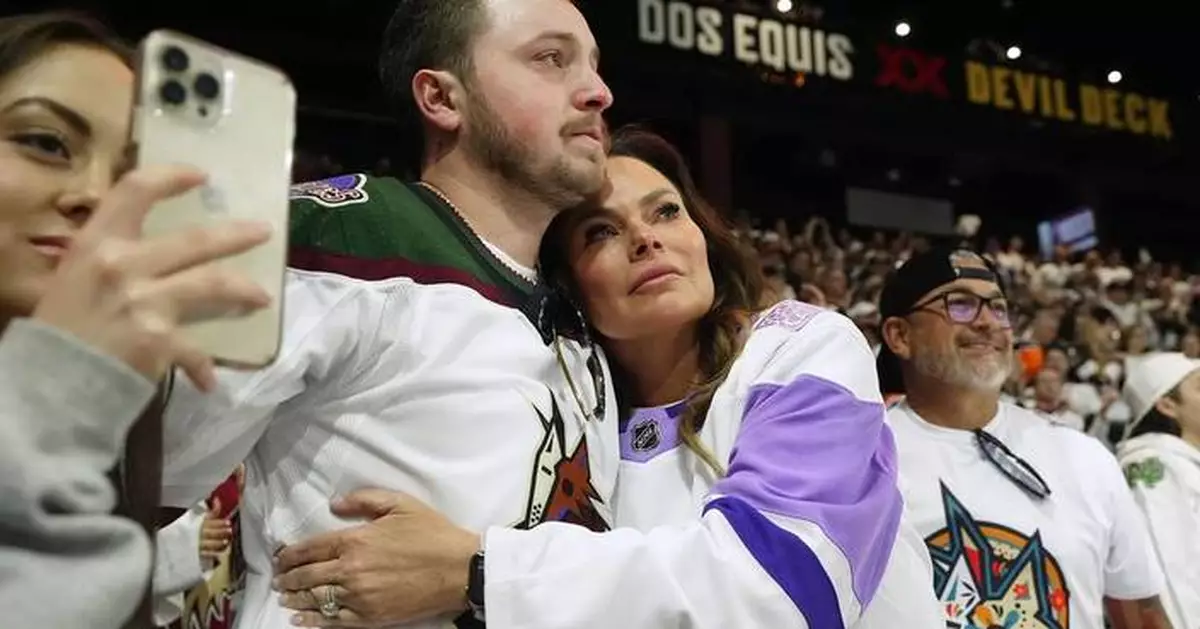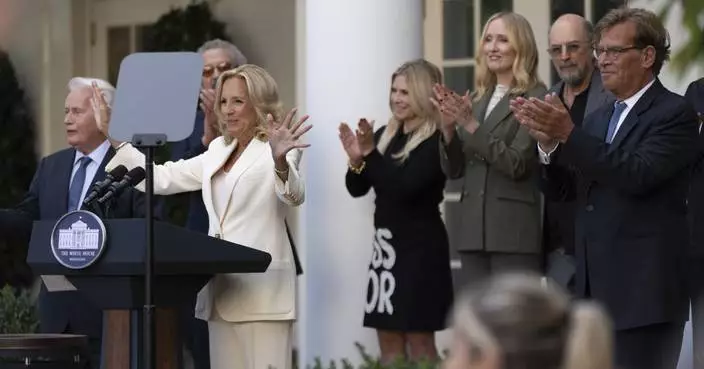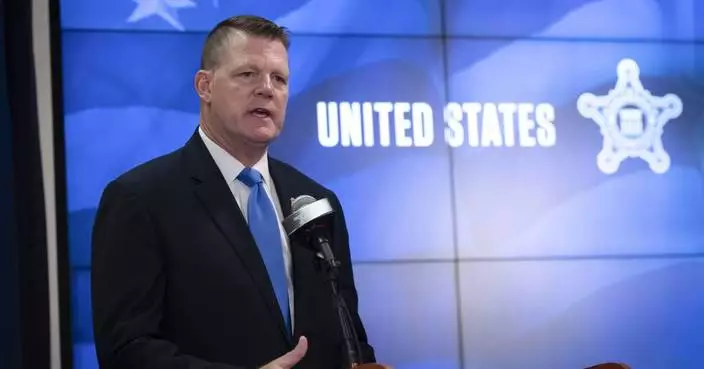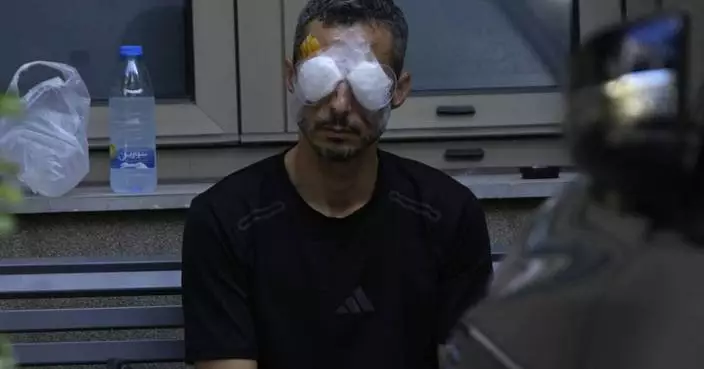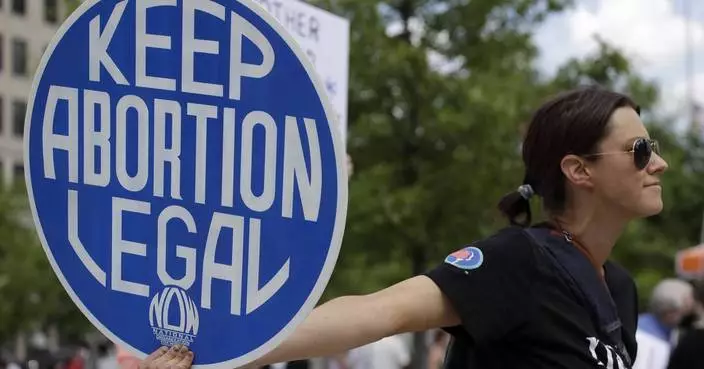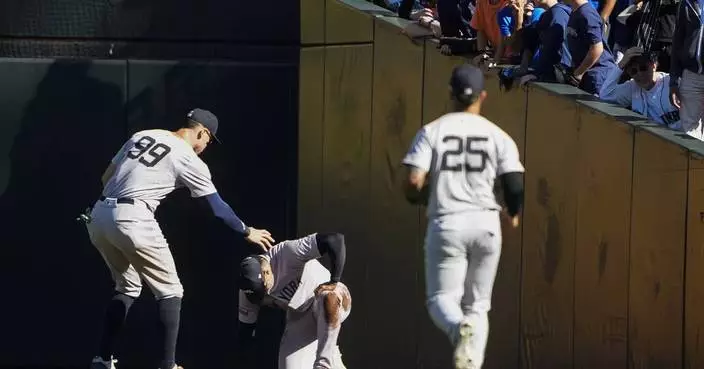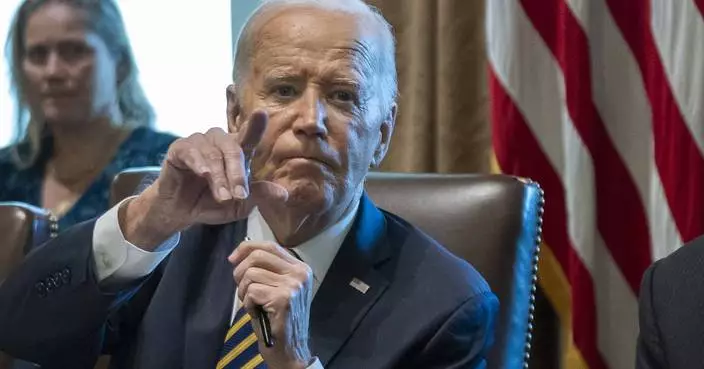TEMPE, Ariz. (AP) — The Arizona Coyotes are officially headed to Salt Lake City.
The NHL Board of Governors voted unanimously Thursday to approve a $1.2 billion sale from Alex Meruelo to Utah Jazz owners Ryan and Ashley Smith, clearing the way for the franchise's move to Utah next season.
The deal includes a provision for Arizona to get an expansion team if a new arena is built within the next five years. The deal will be facilitated through the NHL, with $200 million going to league owners as a relocation fee.
“We expressed our interest publicly with the NHL," Ryan Smith told The Associated Press. “It’s probably been two years where we’ve said, ‘Hey, look, we really believe Utah can be an incredible hockey town.’ You look at all the demographics, we were just talking about the Olympics and you think about the Olympics coming back. It all kind of made sense.”
Smith will take over the franchise's hockey operations and Meruelo will maintain his business operations in Arizona in an effort to secure and develop a tract of land for a new arena in north Phoenix.
Meruelo also retains ownership of the Tucson Roadrunners, the franchise's AHL affiliate, and hopes to move them to Mullett Arena, the Coyotes' temporary home shared with Arizona State University the past two seasons. He plans to pay back the $1 billion once an expansion team is approved.
“The NHL’s belief in Arizona has never wavered," NHL Commissioner Gary Bettman said in a statement. “We thank Alex Meruelo for his commitment to the franchise and Arizona, and we fully support his ongoing efforts to secure a new home in the desert for the Coyotes. We also want to acknowledge the loyal hockey fans of Arizona, who have supported their team with dedication for nearly three decades while growing the game.”
Meruelo will retain the Coyotes' name, logo and trademark, so Smith's group will have to rename the team. The team will play at Delta Center, home of the Jazz, until a new arena can be built.
“We’ll start with Utah on the jersey and we’ll figure out the logo and everything else, and what it is that we are, but that’s a one-way door,” Smith said. "You’ve got to do it once. And with this timeline, I think both the league feels better and we feel better to just run the process and then we’ll drop it when we drop it.”
The sale ends the Coyotes' long-running bid to find a permanent home.
The franchise shared an arena with the NBA's Phoenix Suns after relocating from Winnipeg, moved to Glendale and ended up at Mullett Arena when the city of Glendale backed out of a lease agreement.
Meruelo had been adamant about not wanting to sell the team despite receiving numerous offers since buying the team in 2019. When an auction for the land in north Phoenix got pushed back to June, the Coyotes had no guarantee a deal for a new arena would go through.
With the NHL and players' association hesitant for the Coyotes to play at 5,000-seat Mullett Arena for a third season, Meruelo opted to sell the team, his focus shifting to the new arena and expansion team.
"I agree with Commissioner Gary Bettman and the National Hockey League, that it is simply unfair to continue to have our players, coaches, hockey front office, and the NHL teams they compete against, spend several more years playing in an arena that is not suited for NHL hockey,” Meruelo said in a statement. “But this is not the end for NHL hockey in Arizona. I have negotiated the right to reactivate the team within the next five years, and have retained ownership of the beloved Coyotes name, brand and logo. I remain committed to this community and to building a first-class sports arena and entertainment district without seeking financial support from the public.”
The Coyotes played their final game in Arizona on Wednesday night, a 5-2 win over the playoff-bound Edmonton Oilers. The players celebrated on the ice with team personnel and a few handed their sticks over the glass to fans, who chanted “We love you Coy-otes!”
“It's tough to take it all in,” Coyotes rookie forward Logan Cooley said. “A lot of noise, a lot of personal stuff and obviously the organization, you hear you're going one spot then you're going to the next spot. We've done a good job in this locker room focusing on keeping out the noise and getting better as a team, striving to be the team we want to be one day.”
Officials from Salt Lake City and the city’s 2034 Olympic bid supported Smith’s attempt to bring hockey to Utah, giving the state two major professional franchises.
“This announcement is about more than bringing an NHL team to Salt Lake City — it’s a defining moment in our trajectory, becoming a catalyst for a positive vision that integrates community, connection, and more possibilities for families, residents, and visitors to experience our capital city," Salt Lake City Mayor Erin Mendenhall said in a statement. "I’m thankful for the close partnership with Ryan & Ashley Smith, and the entire SEG team. This is the beginning of a new era that will generate exciting opportunities for our communities, amplify pride and unlock new potential in our downtown core.”
AP Hockey Writer Stephen Whyno contributed to this story.
AP NHL: https://www.apnews.com/hub/NHL
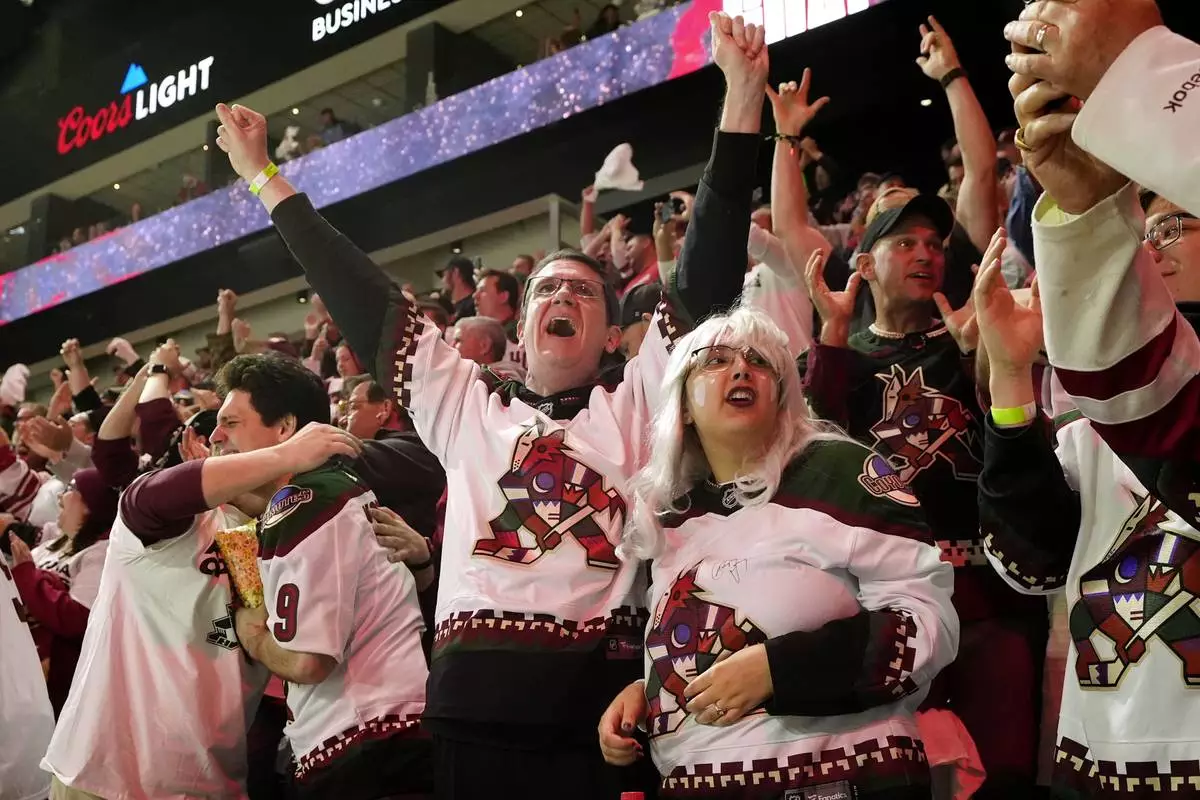
Arizona Coyotes fans celebrate an empty-net goal by Sean Durzi against the Edmonton Oilers during the third period of an NHL hockey game Wednesday, April 17, 2024, in Tempe, Ariz. The Coyotes won 5-2. (AP Photo/Ross D. Franklin)
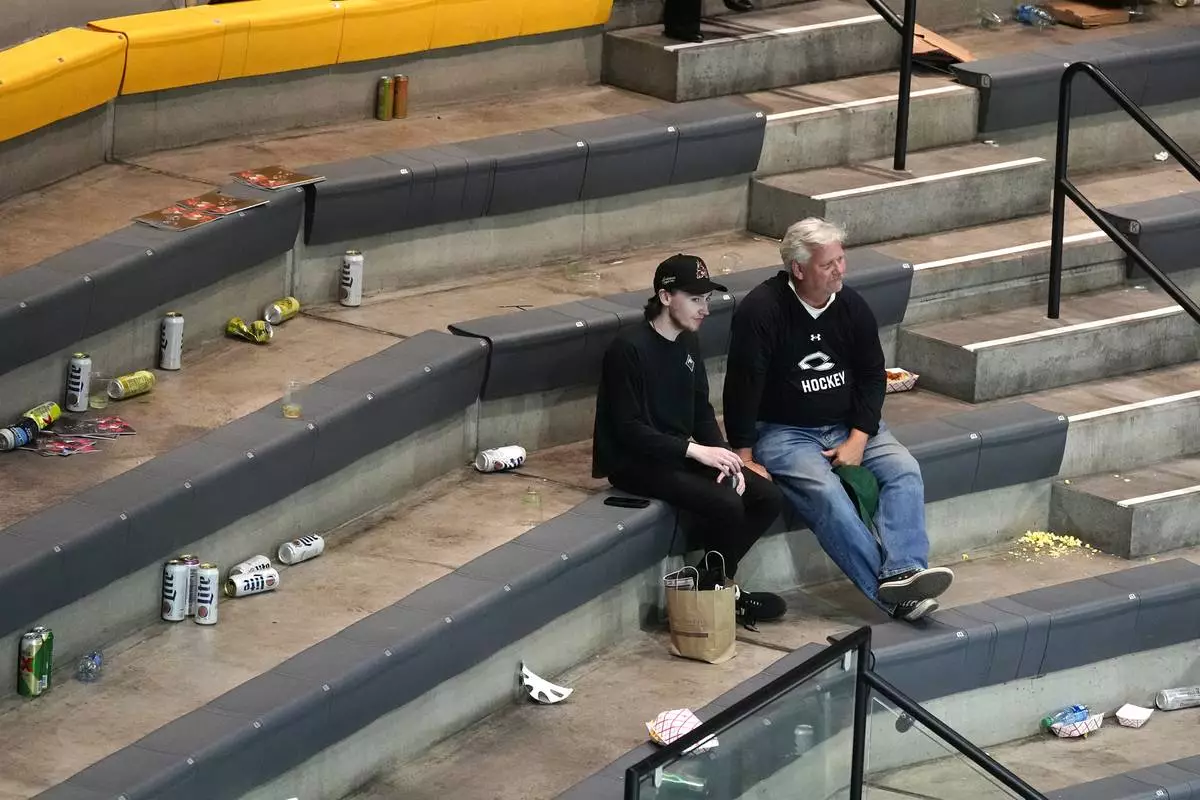
Arizona Coyotes fans stay in their seats long after the team's NHL hockey game against the Edmonton Oilers on Wednesday, April 17, 2024, in Tempe, Ariz. The Coyotes won 5-2. Coyotes owner Alex Meruelo has agreed to sell franchise's hockey operations to Utah Jazz owner Ryan Smith, who intends to move the team to Salt Lake City. (AP Photo/Ross D. Franklin)
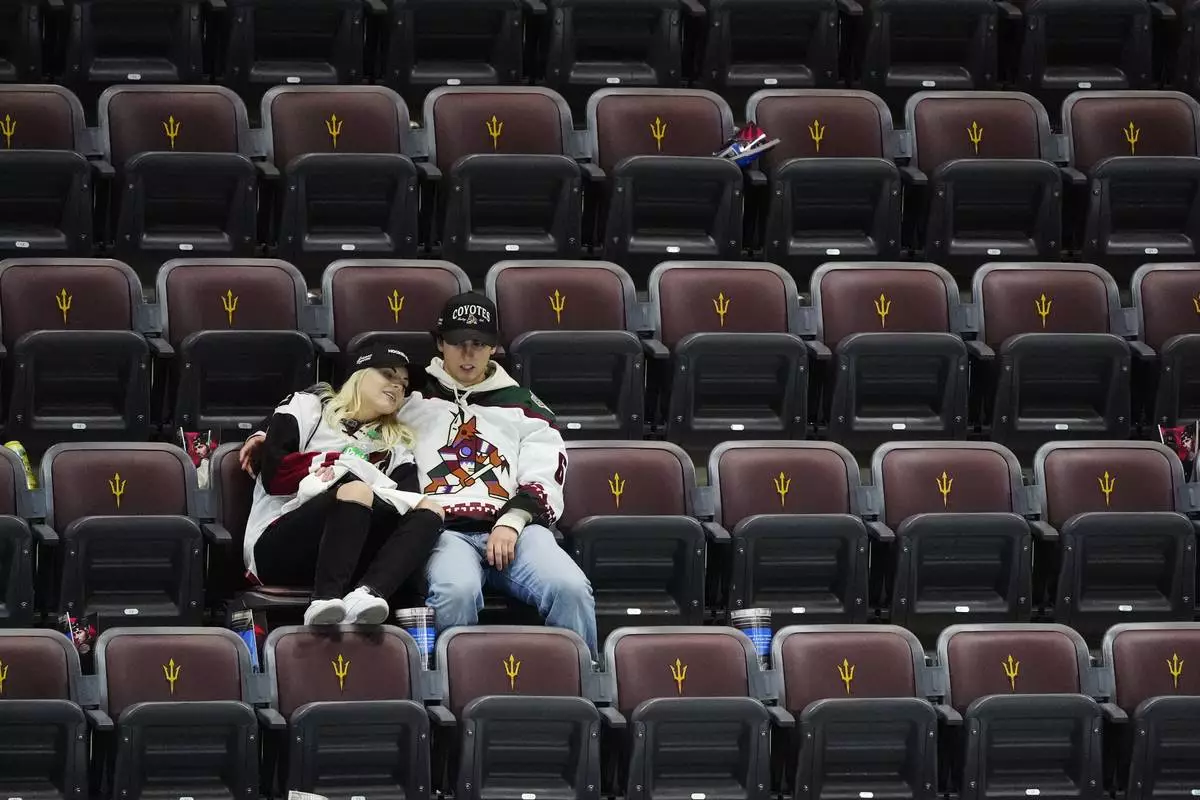
Arizona Coyotes fans sit in their seats long after the team's NHL hockey game against the Edmonton Oilers ended, Wednesday, April 17, 2024, in Tempe, Ariz. The Coyotes won 5-2. Team owner Alex Meruelo agreed to sell franchise's hockey operations to Utah Jazz owner Ryan Smith, who intends to move the team to Salt Lake City. (AP Photo/Ross D. Franklin)

Arizona Coyotes season-ticket holders comfort one another as time expires in team's NHL hockey game against the Edmonton Oilers on Wednesday, April 17, 2024, in Tempe, Ariz. The Coyotes won 5-2. Coyotes owner Alex Meruelo agreed to sell the franchise's hockey operations to Utah Jazz owner Ryan Smith, who intends to move the team to Salt Lake City. (AP Photo/Ross D. Franklin)
COLUMBIA, S.C. (AP) — South Carolina put inmate Freddie Owens to death Friday as the state restarted executions after an unintended 13-year pause because prison officials couldn’t get the drugs needed for lethal injections.
Owens was convicted of the 1997 killing of a Greenville convenience store clerk during a robbery. While on trial, Owens killed a person incarcerated at a county jail. His confession to that attack was read to two different juries and a judge who all sentenced him to death.
Owens, 46, made no final statement. His last meal was two cheeseburgers, french fries, well-done ribeye steak, six chicken wings, two strawberry sodas and a slice of apple pie.
When the curtain to the death chamber opened, Owens was strapped to a gurney, his arms stretched to his sides. After the drug was administered, he said “bye” to his lawyer and she said “bye" to him.
He smiled slightly and his facial expression did not change much before he appeared to lose consciousness after about a minute. Then his eyes closed and he took several deep breaths. His breathing got shallower and his face twitched for another four or five minutes before the movements stopped.
A doctor came in and declared him dead a little over 10 minutes later at 6:55 p.m.
Owens' last-ditch appeals were repeatedly denied, including by a federal court Friday morning. Owens also petitioned for a stay of execution from the U.S. Supreme Court. South Carolina's governor and corrections director swiftly filed a reply, stating the high court should reject Owens' petition. The filing said nothing is exceptional about his case.
The high court denied the request shortly after the scheduled start time of the execution.
His last chance to avoid death was for Republican South Carolina Gov. Henry McMaster to commute his sentence to life in prison. McMaster denied Owens' request as well, stating that he had “carefully reviewed and thoughtfully considered” Owens' application for clemency.
Owens may be the first of several people to die in the state's death chamber at Broad River Correctional Institution. Five other people are out of appeals, and the South Carolina Supreme Court has cleared the way to hold an execution every five weeks.
South Carolina first tried to add the firing squad to restart executions after its supply of lethal injection drugs expired and no company was willing to publicly sell them more. But the state had to pass a shield law keeping the drug supplier and much of the protocol for executions secret to be able to reopen the death chamber.
To carry out executions, the state switched from a three-drug method to a new protocol of using just the sedative pentobarbital. The new process is similar to how the federal government kills people on death row, state prison officials said.
South Carolina law allows condemned people to choose lethal injection, the new firing squad or the electric chair built in 1912. Owens allowed his lawyer to choose how he died, saying he felt if he made the choice he would be a party to his own death, and his religious beliefs denounce suicide.
Owens changed his name to Khalil Divine Black Sun Allah while in prison, but court and prison records continue to refer to him as Owens.
Owens was convicted of killing Irene Graves in 1999. Prosecutors said he fired a shot into the head of the single mother of three who worked three jobs when she said she couldn't open the store's safe.
Hanging over his case was another killing: After his conviction, but before he was sentenced in Graves’ killing, Owens fatally attacked Christopher Lee, whom he was incarcerated with at a county jail.
Owens gave a detailed confession about how he stabbed Lee, burned his eyes, choked and stomped him, ending by saying he did it “because I was wrongly convicted of murder,” according to an investigator's written account.
The confession was read to each jury and judge who went on to sentence Owens to death. Owens had two different death sentences overturned on appeal only to end up back on death row.
Owens was charged with murder in Lee's death but was never tried. Prosecutors dropped the charges with the right to restore them in 2019 around the time Owens ran out of regular appeals.
In his final appeal, Owens' lawyers said prosecutors never presented scientific evidence that Owens pulled the trigger when Graves was killed and the chief evidence against him was a co-defendant who pleaded guilty and testified that Owens was the killer.
Owens’ attorneys provided a sworn statement two days before the execution from Steven Golden saying Owens was not in the store, contradicting his trial testimony. Prosecutors said other friends of Owens and his former girlfriend testified that he bragged about killing the clerk.
Owens' lawyers also said he was just 19 when the killing happened and that he had brain damage from physical and sexual violence while in a juvenile prison.
“Mr. Owens’s childhood was marked by suffering on a scale that is hard to comprehend. He spent his adulthood in prison for a crime that he did not commit,” attorney Gerald “Bo” King said in a statement following Owens’ execution. “The legal errors, hidden deals, and false evidence that made tonight possible should shame us all.”
South Carolinians for Alternatives to the Death Penalty held a vigil outside the prison about 90 minutes before Owens was scheduled to die.
South Carolina’s last execution was in May 2011. It took a decade of wrangling in the Legislature — first adding the firing squad as a method and later passing a shield law — to get capital punishment restarted.
South Carolina has put 43 people to death since the death penalty was restarted in the U.S. in 1976. In the early 2000s, it was carrying out an average of three executions a year. Only nine states have put more people to death.
Since the unintentional execution pause, South Carolina’s death row population has dwindled. The state had 63 condemned people in early 2011. It now has 31 after Owens' death Friday. About 20 people have been taken off death row and received different prison sentences after successful appeals. Others have died of natural causes.
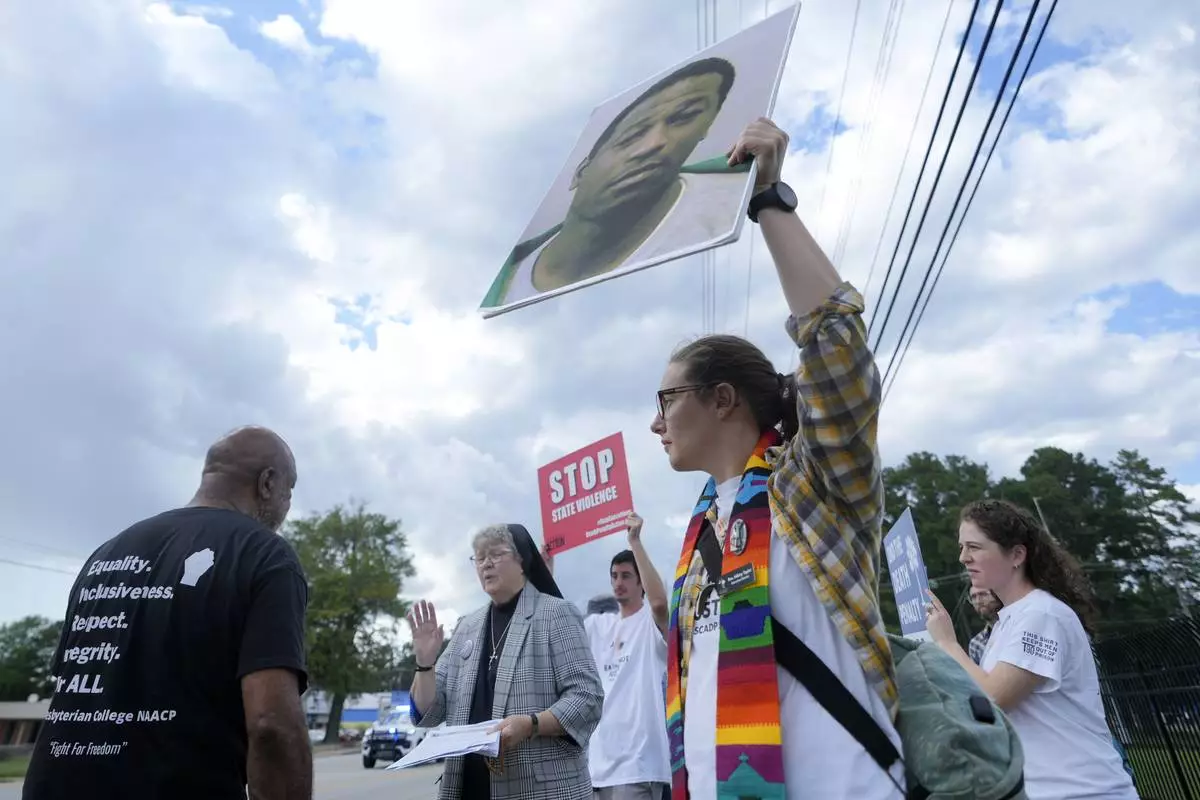
Rev. Hillary Taylor protests the planned execution of Freddie Eugene Owens, 46, on Friday, Sept. 20, 2024, in Columbia, S.C. Owens is set to be the first person to be executed in South Carolina in 13 years. (AP Photo/Chris Carlson)
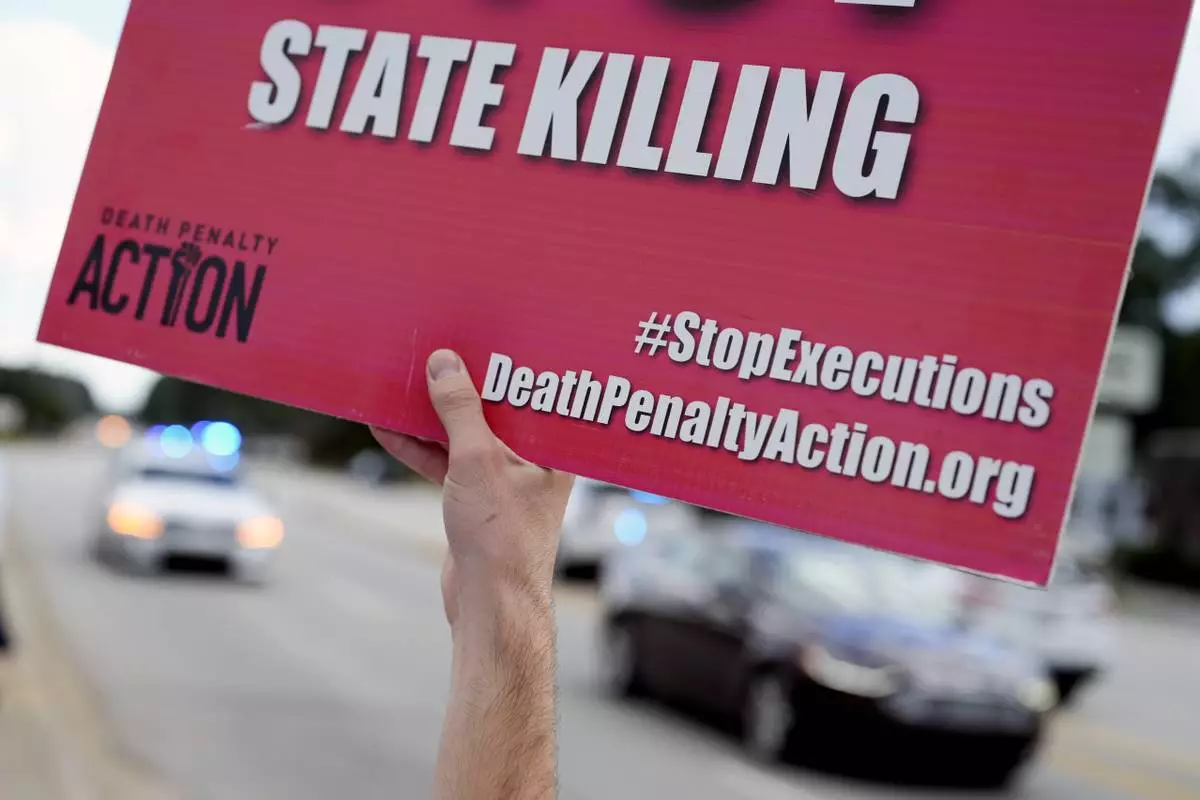
A demonstrators protests the planned execution of Freddie Eugene Owens, 46, on Friday, Sept. 20, 2024, in Columbia, S.C. Owens is set to be the first person to be executed in South Carolina in 13 years. (AP Photo/Chris Carlson)
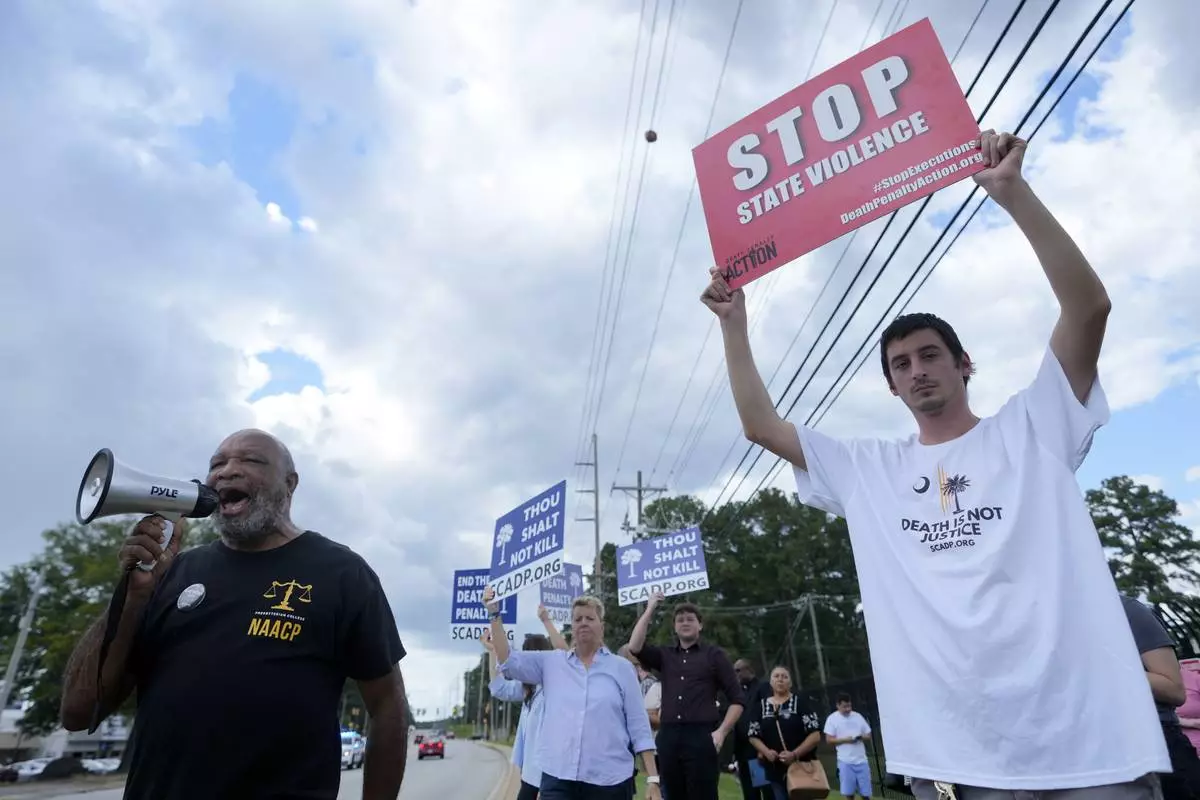
Jesse Motte, right, protests the planned execution of Freddie Eugene Owens, 46, on Friday, Sept. 20, 2024, in Columbia, S.C. Owens is set to be the first person to be executed in South Carolina in 13 years. (AP Photo/Chris Carlson)
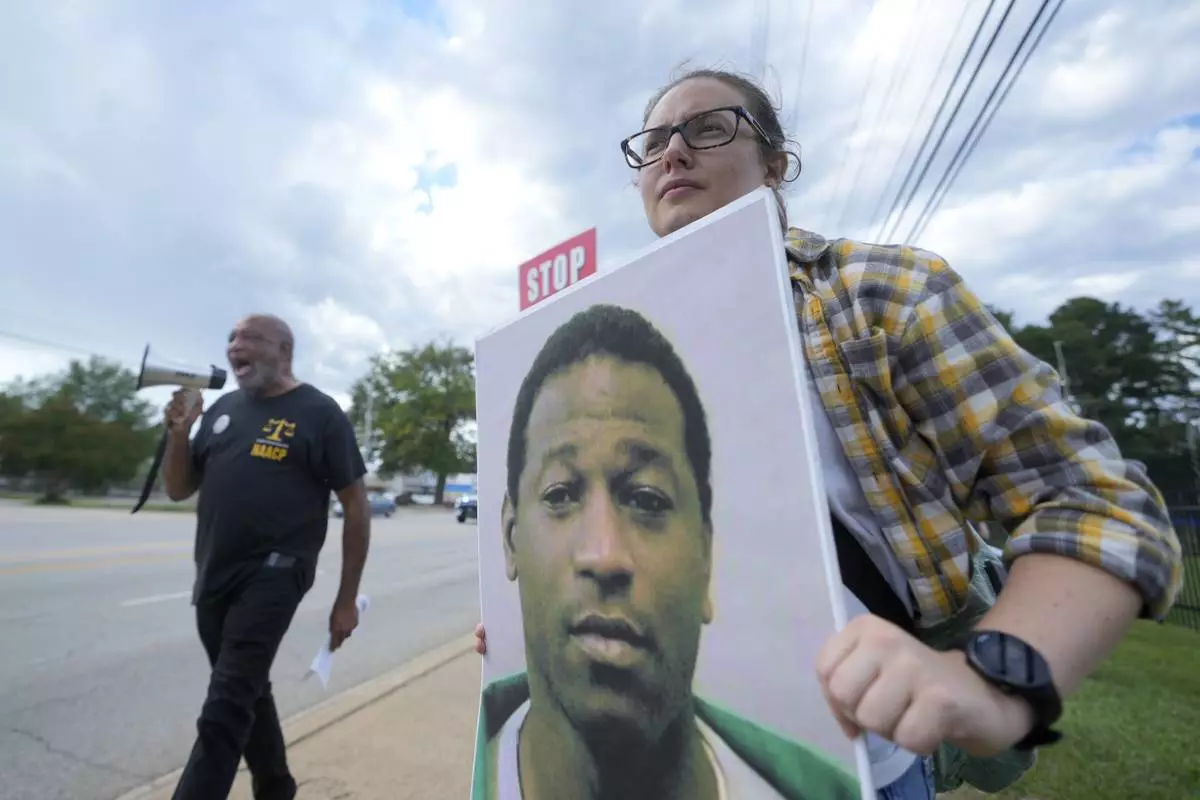
Rev. Hillary Taylor protests the planned execution of Freddie Eugene Owens, 46, on Friday, Sept. 20, 2024, in Columbia, S.C. Owens is set to be the first person to be executed in South Carolina in 13 years. (AP Photo/Chris Carlson)
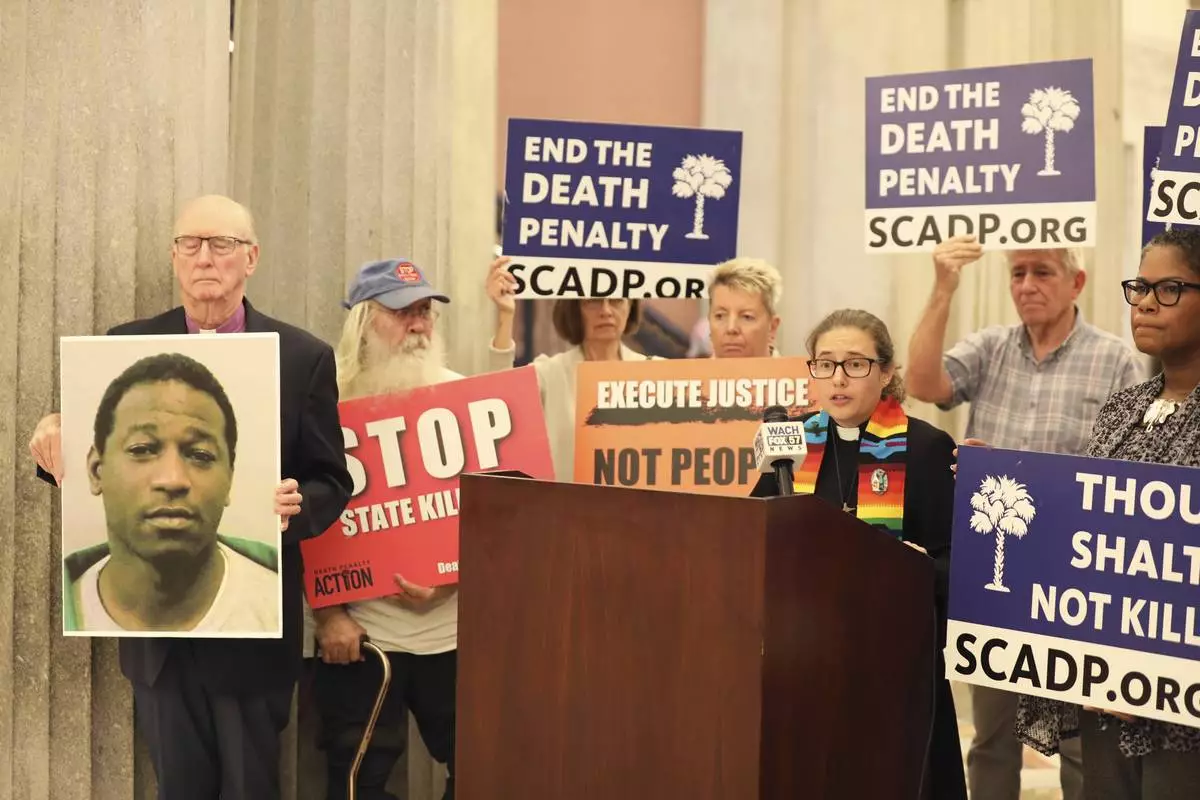
South Carolinians for Alternatives to the Death Penalty Executive Director Rev. Hillary Taylor speaks at a news conference before delivering petitions to stop the execution of Freddie Owens at the South Carolina Statehouse in Columbia, S.C., Thursday, Sept. 19, 2024. (AP Photo/Jeffrey Collins)
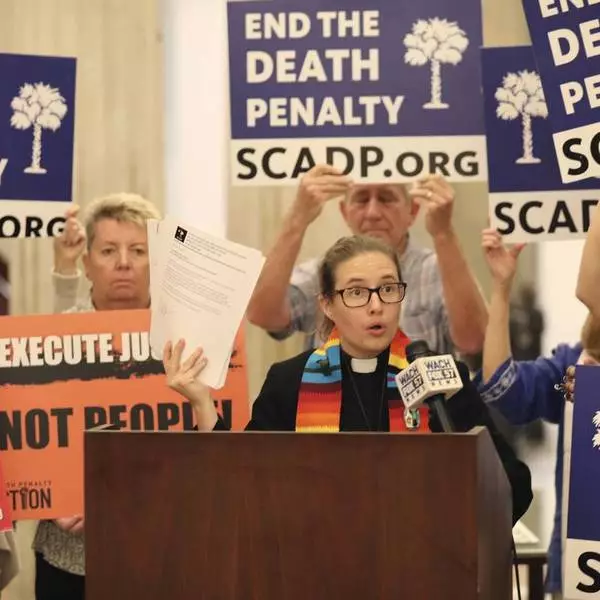
South Carolina prepares for first execution in 13 years
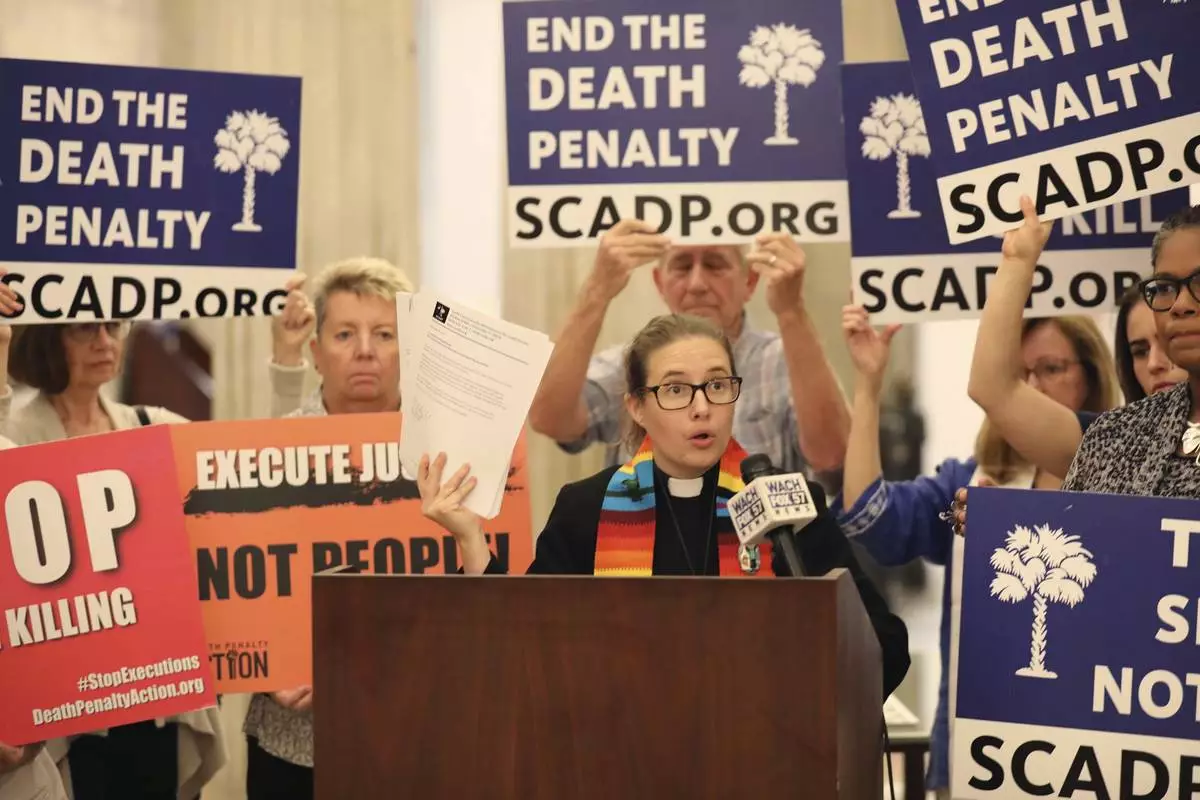
South Carolinians for Alternatives to the Death Penalty Executive Director Rev. Hillary Taylor speaks at a news conference before delivering petitions to stop the execution of Freddie Owens at the South Carolina Statehouse in Columbia, S.C., Thursday, Sept. 19, 2024. (AP Photo/Jeffrey Collins)
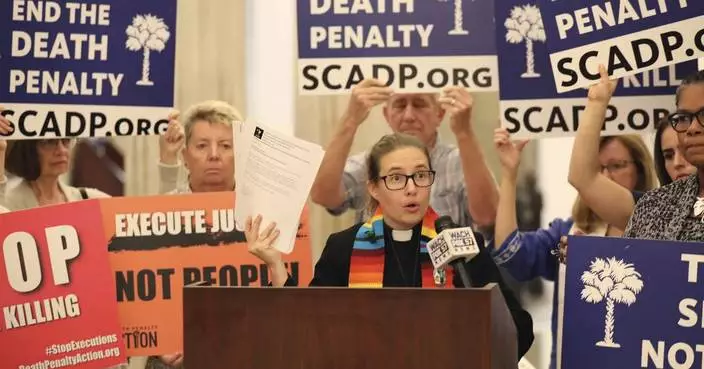
South Carolina prepares for first execution in 13 years






